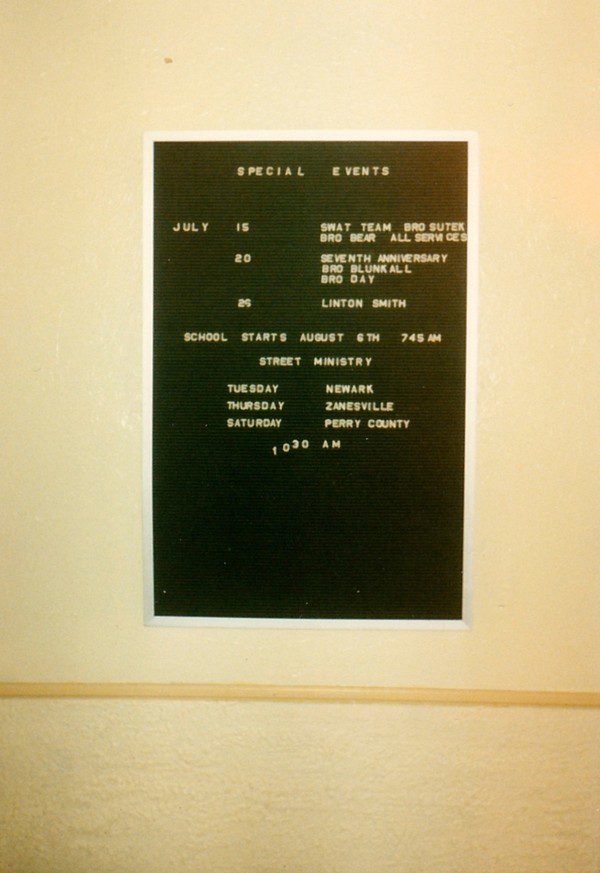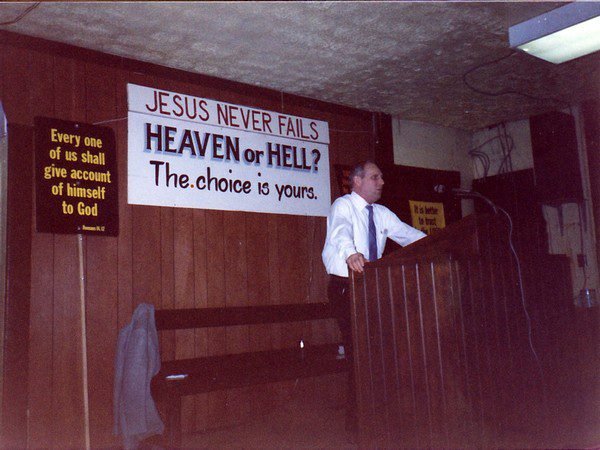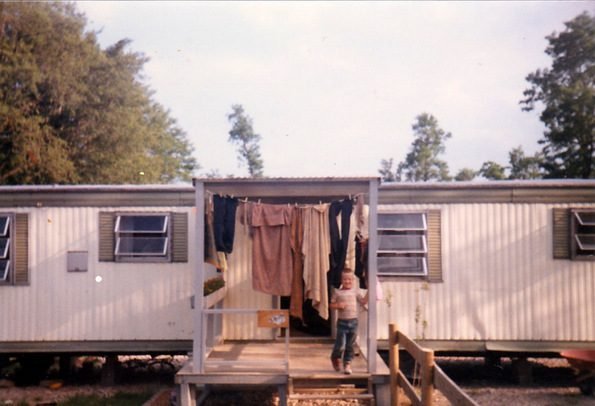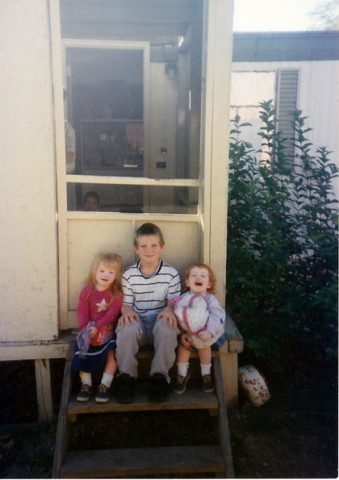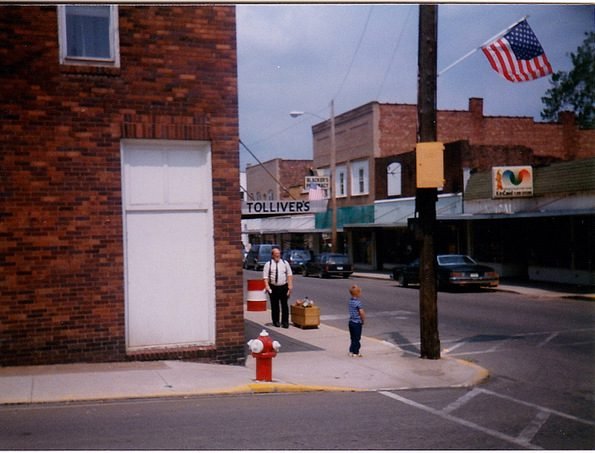
Let me share a dirty little secret with readers about Evangelicals who are actively involved in what is commonly called “public evangelism.” Door-to-door evangelism, street preaching, handing out tracts, standing on street corners with Bible verse signs — why do some Evangelicals do these things? Is the grand goal to win as many souls as possible before Jesus returns to earth? Is the notion that Hell is hot and death is sure what drives these evangelizers to make a public spectacle of themselves? Is everything they do driven by a love for the lost souls? Surely, these people are True Christians, right? The overwhelming majority of Evangelicals never verbalize their faith to someone else. Yet, these zealots go out of their way to confront non-Christians with their peculiar version of the Christian gospel. Surely, they are the “real” Christians of our day, right?
I was an Evangelical pastor for 25 years. I spent my formative years in churches that were quite aggressive evangelistically. I attended Midwestern Baptist College in Pontiac, Michigan in the 1970s. Midwestern was known for producing soulwinning pastors, evangelists, and missionaries. As a pastor, I certainly followed my training, using the techniques I was taught to harass as many people as possible for Jesus. Yet, despite my on-fire, aggressive soulwinning efforts, few people asked Jesus to save them as a direct result of my efforts. Yes, hundreds of people were saved after listening to me preach, but the number of people saved outside of church services was few. You see, the goal of such efforts was not to win souls, as much as it was:
- To be seen as a prophet by the community; to be seen as one willing to publicly take a stand for Jesus
- To be seen as a preacher different from and superior to the other preachers in town; I was the one who cared for their souls, not their pastors
- To be seen in the same light as the Apostle Paul and other first-century Christians; to say to the communities where I pastored that my churches were the real deal, cut from the fabric of the churches found in the Bible
- To be seen as being “right,” right about God, Jesus, salvation, the Bible, and New Testament Christianity
Most Americans don’t want to be bothered by Fundamentalist evangelizers. Let me share a soulwinning story from years ago that I think aptly illustrates this fact. One Saturday, Greg Carpenter (Please see Dear Greg.) and I were knocking on doors in Junction City, Ohio. At the time, I was the pastor of Somerset Baptist Church in Mt. Perry. It was a bitterly cold Ohio winter day, but warm on the inside with love for souls, we started going door-to-door, looking for people who would let us share the Independent Fundamentalist Baptist (IFB) gospel with them. We finally came upon a young woman who was willing to “listen” to us. She wouldn’t invite us inside, so we stood on her porch as Greg attempted to win her to Jesus. I still can picture in my mind this woman today. She had no coat on, yet there she stood freezing her ass off as Greg took her through whatever evangelism plan we were using that day. When Greg asked her if she would like to ask Jesus to save her, she said yes! Greg led her in the sinner’s prayer, and the woman was wonderfully and gloriously saved. We heard the angels in Heaven rejoicing over another lost soul being rescued from the clutches of Satan.
After praying the sinner’s prayer, the newly-saved woman closed the door and we went on our way looking for more victims, er, I mean, lost souls. She was the only soul that was saved that day. Later attempts to get the woman to be baptized and attend church proved futile. You see, the only thing she got saved from on the cold winter day was Greg and Bruce. She just wanted to shut her door and be left alone.
Winning this woman to Jesus fueled our pride, reminding us that we were doing a great work for the Lord of Lord and Kings and Kings. We were, in fact, bugging people who didn’t want to be bothered. But, since when have Evangelical zealots cared about what non-Christians thought? I didn’t. I was a God-called preacher of the gospel. I was determined to tell others the “truth” even if they didn’t want to hear it.
“I told them, Lord! The results are up to you,” I told myself. Yep, I sure told them. Part of the deconversion process for me was coming to terms with why I did what I did as an Evangelical pastor. I concluded that I deep down really didn’t care if souls were saved. “That was God’s business,” I thought. This was especially the case after I became a five-point Calvinist. What was most important to me was looking the part; being perceived as a man of God who loved sinners and would go to great lengths to win them to Jesus.
During the eleven years I was the pastor of Somerset Baptist, over 600 hundred people made a profession of faith in Christ. Some Sundays, the altar was lined with people getting saved and getting right with God. Success was measured by altar response. Yet, few of these “converts” became active, long-term church members. 600+ conversions, yet attendance was, at its highest, a little over 200.
Why were so many people saved under my preaching, yet I failed so miserably in my soulwinning efforts outside of the church? I was passionate both inside and outside of the church. Why the disparate numbers? First, people were attracted to my preaching. By all accounts — just ask former congregants — I was a skilled, winsome preacher. Sunday after Sunday, my sermons were well received. (Well, there was that mess of a sermon from Hosea. Hell, I didn’t even know what I was talking about.) People drove for miles to hear me preach. I believe this affection for me personally drove the high number of conversions. Once outside of the church, I took on the traits mentioned above. I was more concerned about being a prophet, a beacon of rightness than I was helping others. The good news is that over time I lost my zeal for winning souls, choosing instead to engage people relationally. I suspect Calvinism played a big part in how I viewed the eternal destiny of other people. I left the soul-saving up to God. I just expositionally preached the Bible and left the results up to God. I can count on one hand the people who were saved during the seven years I pastored Our Father’s House in West Unity, Ohio. Congregants — most of them, anyway — loved me, I loved them back, and we all were quite content to let the world go to Hell. This post is me being brutally, openly honest about my life as an Evangelical pastor. I am sure that my critics will see what I have written here as more proof that I wasn’t really a Christian; that I was a false prophet. To that I say, whatever. I suspect what I have written here will resonate with a lot of Evangelical preachers. They know, deep down, that I am telling the truth.
Bruce Gerencser, 68, lives in rural Northwest Ohio with his wife of 47 years. He and his wife have six grown children and sixteen grandchildren. Bruce pastored Evangelical churches for twenty-five years in Ohio, Texas, and Michigan. Bruce left the ministry in 2005, and in 2008 he left Christianity. Bruce is now a humanist and an atheist.
Your comments are welcome and appreciated. All first-time comments are moderated. Please read the commenting rules before commenting.
You can email Bruce via the Contact Form.

